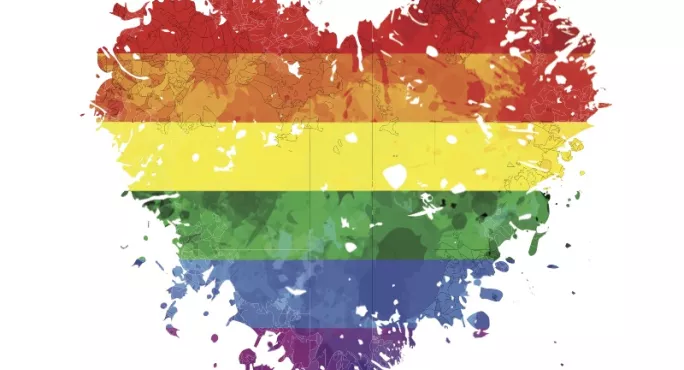- Home
- If schools don’t teach LGBT+ acceptance, who will?
If schools don’t teach LGBT+ acceptance, who will?

I’d never witnessed one of these events before, but last Saturday I decided to go and see Oxford’s Pride March. I didn’t make a huge effort: it was only a 20-minute walk from my home. I set out merely to witness it, but it wasn’t possible to observe dispassionately. It caught up everyone present: immediately, we bystanders weren’t spectators but supporters.
I’m rather visibly (and boringly) a middle-aged white heterosexual retired head. But I didn’t buy the overpriced rainbow garland in order to climb on anyone’s bandwagon, nor in an attempt at virtue-signalling: once there, I really felt the need to demonstrate my support.
It was loud, raucous, in-yer-face, full of laughter and joy: shameless, indeed - in the sense that these marches are about LGBT+ people refusing any longer to be shamed. My heart swelled with pride that they and their supporters could in 2019 publicly express their pride in who they are.
I don’t think I’d have done that twenty or thirty years ago. I fear that, in a stuffy, bourgeois kind of way, I’d have found such stridency (stridency in any cause, to be fair) inappropriate and irritating. “Just argue the case calmly and rationally,” I’d have said. But I was wrong, wasn’t I? Because the people affected were so excluded, so cut off from the channels occupied by the straight and censorious that it took courageous campaigning organisations like Stonewall to lead the way and fight the fight.
On Saturday, I enjoyed sharing the collective Pride in those marchers and in the organisations who support them. But my joy was not unalloyed. Indeed, the more I looked at the banners being carried, and the more I’ve considered their messages since, the more I feel that society’s pride in how far we have travelled is hollow at best.
Underlying that celebration of progress and mutual support lay the deep hurt suffered by the LGBT+ community. Most striking, perhaps, were the banners carried by religious and ethnic groups. I liked the alliteration of a Queer Quakers banner, and derived savage amusement from seeing a twice-life-size effigy of Jesus with his arms open to welcome all, a more inclusively Christian message than the Tweet issued by a Roman Catholic bishop the same day reminding his flock that they should not join or condone Pride marches.
Religions aren’t alone in allowing or even promoting prejudice. One banner proclaimed that at the University of Oxford, 60 per cent (if I remember rightly) of gay people suffer homophobic bullying. 60 per cent of some of the brightest young people in the country - in the world, indeed.
Cleverness doesn’t preclude prejudice. One must conclude, then, that the only answer is education. Yet education is itself embroiled in a battle against prejudice. As children and teachers at a Birmingham school have to run the gauntlet of hostile protests against its teaching of LGBT+ issues, public figures have weighed in - frequently both unwisely and ignorantly.
Former cabinet minister Esther McVey opined that parents should be able to decide what kind of sex and relationships education (SRE), if any, their children receive. I doubt she’d advocate such choice about maths, history or even children sitting Sats. Others have argued (as I have many times, in other contexts) that schools shouldn’t be asked to solve all society’s ills. Spiked Online’s Joanne Williams observed that teachers will be better at teaching maths or science than SRE, which is almost certainly true, and should keep out of it - which, I think, is wrong.
Protesters refuse even to negotiate and instead issue death threats, Ann Widdecombe, now an MEP-elect, repeats her repulsive view that people should be treated for being homosexual. At the same time, faith leaders defend homophobia and misogynism. At that point schools must set a moral standard by teaching (with sensitivity) both understanding of difference, embracing LGBT+ issues as well as gender and race, and stressing the need not merely for tolerance, but for welcoming and true acceptance.
Because, if schools don’t teach children those essential values, I don’t know who will. And a nation can’t afford to take that risk.
Dr Bernard Trafford is a writer, educationalist, musician and former independent school headteacher. He tweets @bernardtrafford
Keep reading for just £1 per month
You've reached your limit of free articles this month. Subscribe for £1 per month for three months and get:
- Unlimited access to all Tes magazine content
- Exclusive subscriber-only stories
- Award-winning email newsletters



